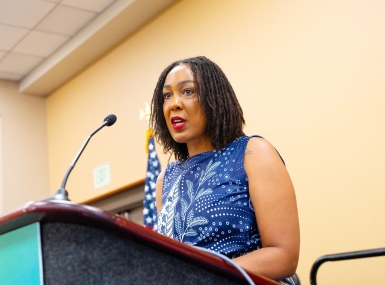HHS announces Special Enrollment Period in response to COVID-19 pandemic
Author

Blaire Bryant
Upcoming Events
Related News

Key Takeaways
On January 28, President Biden signed an executive order directing the Department of Health and Human Services (HHS) to establish a Special Enrollment Period to expand access to Affordable Care Act (ACA) coverage to address the devastating health and economic effects of the COVID-19 pandemic. Shortly following this directive, HHS announced it would open the Special Enrollment Period beginning February 15 and running through May 15.
In calling for the Special Enrollment Period, the executive order cites provisions under the ACA that allow for a special enrollment period for “exceptional circumstances,” such as the current global pandemic. Additionally, the executive order referenced the disproportionate impact the pandemic has had on communities of color and that Black, Latino and Native Americans are more likely to be uninsured than white Americans. The establishment of the Special Enrollment Period will help more county residents access affordable health insurance coverage during a period of record unemployment and economic uncertainty and as the COVID-19 vaccination roll-out continues.
While the regular 2021 Open Enrollment Period ended on December 15, the current public health crisis and its subsequent economic fallout is expected to continue for some time. The latest actions taken by the administration will help those who may be have lost employer-sponsored coverage since mid-December, may be experiencing new health concerns or who may have been unaware of the regular enrollment period.
The Special Enrollment Period will be available to all ACA marketplace-eligible consumers, regardless of whether they are submitting a new application or updating a current one. Ensuring eligible consumers are aware of the enrollment period will be critical to the success of the SEP. The Centers for Medicare and Medicaid Services (CMS) has said it will dedicate $50 million towards advertising and outreach around the Special Enrollment Period, efforts which will help inform county residents of the health care options available to them. Expanding outreach efforts may also alert more county residents to other programs for which they are eligible, including Medicaid and the Children’s Health Insurance Program (CHIP).
Counties firmly support expanding health care coverage to help ensure the health and safety of their residents, especially as the impacts of the pandemic continue to be felt deeply at the local level. Counties invest over $80 billion annually in community health systems and offer health insurance to the nearly 3.6 million county employees across the country. They serve as the first line of defense against the current public health crisis and, more broadly, as caretakers of the local health and human service safety net.
Additional Resources
Advocacy
Biden administration announces regulatory action to strengthen the ACA and keep residents insured
On April 5, the Biden administration announced regulatory action to increase health care affordability for families seeking coverage through the Affordable Care Act and reduce the number of uninsured Americans.

Related News

Engaging people with ‘lived experience’ helps build substance use disorder programming
Philadelphia’s Keli McLoyd noted to NACo's Health Steering Committee that increased harm reduction initiatives have led to fewer drug overdose deaths.

CMS announces grant awards to improve the continuity of care for justice-involved individuals
On September 27, the Centers for Medicare & Medicaid Services announced $106.5 million in state planning grants aimed at improving healthcare continuity for individuals transitioning from incarceration.

SAMHSA releases new 2024 data on rates of mental illness and substance use disorder in the U.S.
On July 28, the U.S. Department of Health and Human Services’ (HHS) Substance Abuse and Mental Health Services Administration (SAMHSA) released the findings of its annual National Survey on Drug Use and Health (NSDUH), which provides data on rates of substance use and mental illness at the national, state and local level.
